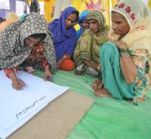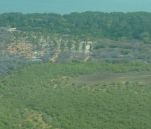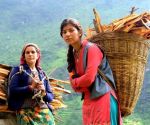Background The FAO Forestry Division is dedicated to gender equality and the empowerment of women. Women are critical to ensuring the future sustainability of forests and forestry. Their equal contributions in forest activities are urgently needed as increasingly urbanized societies are losing recognition of the multiple functions of forests and their importance for livelihoods and development. Read more How to mainstream gender in forestry: a practical field guide  To assist technical officers in their work, FAO has published a practical field guide with concrete examples of how to incorporate gender issues in forestry projects and programmes. To assist technical officers in their work, FAO has published a practical field guide with concrete examples of how to incorporate gender issues in forestry projects and programmes.
The guide offers practical steps that forestry officers can take to assess the gender aspects of their work and form and integrate key gender-responsive actions. Find the publication here. While the health aspects of the COVID-19 pandemic have not affected rural areas as much as urban centres, containment measures pose new challenges to rural women with regards to their roles in household food security, as agricultural producers, farm managers, processors, traders, wage workers and entrepreneurs. Past experience shows that rural women are disproportionally affected by health and economic crises in a number of ways, including but not limited to food security and nutrition, poverty, access to health facilities, services and economic opportunities, and gender-based violence (GBV). This brief compiles evidence from current and previous epidemics to explore the socio-economic implications of the impact of the pandemic on food systems and rural economies, and how a gender-sensitive approach can help address key policy issues related to the functioning of food and agricultural systems and the special circumstances of rural women. It also provides concrete policy recommendations to mitigate the impacts of the pandemic on rural women and girls. Find the brief here 2030 SDGs focus on gender issues The 2030 Agenda for Sustainable Development includes 17 proposed Sustainable Development Goals (SDGs) and 169 targets, with SDG5 working to “Achieve gender equality and empower all women and girls.” Thanks to its cooperation with IFPRI-PIM, FAO is already making data available through the Gender and Land Rights Database (GRLD) to contribute to monitoring and implementation of SDG5, and will continue its efforts to mainstream gender in forestry projects and programmes as it works to achieve SDG15, which focuses on land and forests. Learn more FAO Forestry initiatives on gender  Forest and Farm Facility Gender equality and the economic empowerment of women is an important focus of the Forest and Farm Facility (FFF) Phase II, active in 10 core and 6 network countries. FFF provides direct support to forest and farm producer organizations (FFPOs). Women’s groups and female-led enterprises are strengthened through capacity development to ensure climate-resilient landscapes and improved livelihoods. Concrete achievements include policy engagement, entrepreneurship and business skills, contribution to restoration and mitigation targets, and improved access to social and cultural services. A gender-sensitive monitoring and learning framework ensures mainstreaming of gender equality, youth inclusion and integration of indigenous peoples. The unique FFF approach enables female and male smallholder farmers and their organizations to better advocate their important role as changemakers at local, national and regional levels, including the crucial contributions of rural women to sustainable and inclusive economic development, food sovereignty and climate resilience. Forest and Farm Facility Gender equality and the economic empowerment of women is an important focus of the Forest and Farm Facility (FFF) Phase II, active in 10 core and 6 network countries. FFF provides direct support to forest and farm producer organizations (FFPOs). Women’s groups and female-led enterprises are strengthened through capacity development to ensure climate-resilient landscapes and improved livelihoods. Concrete achievements include policy engagement, entrepreneurship and business skills, contribution to restoration and mitigation targets, and improved access to social and cultural services. A gender-sensitive monitoring and learning framework ensures mainstreaming of gender equality, youth inclusion and integration of indigenous peoples. The unique FFF approach enables female and male smallholder farmers and their organizations to better advocate their important role as changemakers at local, national and regional levels, including the crucial contributions of rural women to sustainable and inclusive economic development, food sovereignty and climate resilience.
 Community Based Forestry (CBF) assessment framework Forestry’s Social Forestry Team supported the development of a framework to assess the extent and effectiveness of CBF globally. Two of the indicators in the global assessment are equity (e.g. equitable sharing of costs and benefits) and inclusiveness (e.g. engaging marginalized individuals and groups, including women and youth, and sharing equitably in decision-making processes and benefits).The assessment framework was developed in 2015, tested in 20 countries and finalized in 2019. Assessment findings are being used to facilitate strengthening of CBF in selected countries. Find the framework here. Community Based Forestry (CBF) assessment framework Forestry’s Social Forestry Team supported the development of a framework to assess the extent and effectiveness of CBF globally. Two of the indicators in the global assessment are equity (e.g. equitable sharing of costs and benefits) and inclusiveness (e.g. engaging marginalized individuals and groups, including women and youth, and sharing equitably in decision-making processes and benefits).The assessment framework was developed in 2015, tested in 20 countries and finalized in 2019. Assessment findings are being used to facilitate strengthening of CBF in selected countries. Find the framework here.
 Forest tenure assessment framework: This framework aims to operationalize the Voluntary Guidelines on the Responsible Governance of Tenure (VGGT) in the forestry sector by assessing participatory forest tenure regimes against the VGGT principles. The framework helps countries evaluate their forest tenure related policies, laws, institutions, and administration to identify strengths and gaps with respect to the good governance principles of the VGGT, identify actions for strengthening governance of tenure, and to prioritize areas for improvements in tenure. The VGGT has two implementing principles that contribute to gender equality: human dignity (non-discrimination) and justice (gender equity). The VGGT specifically calls for gender sensitive policies and laws as well as gender sensitive processes and procedures in the recognition, protection, and transfer of rights. Find the framework here. Forest tenure assessment framework: This framework aims to operationalize the Voluntary Guidelines on the Responsible Governance of Tenure (VGGT) in the forestry sector by assessing participatory forest tenure regimes against the VGGT principles. The framework helps countries evaluate their forest tenure related policies, laws, institutions, and administration to identify strengths and gaps with respect to the good governance principles of the VGGT, identify actions for strengthening governance of tenure, and to prioritize areas for improvements in tenure. The VGGT has two implementing principles that contribute to gender equality: human dignity (non-discrimination) and justice (gender equity). The VGGT specifically calls for gender sensitive policies and laws as well as gender sensitive processes and procedures in the recognition, protection, and transfer of rights. Find the framework here.
 UN-REDD: The UN-REDD Programme works to integrate gender equality and women’s empowerment principles within the support it provides to its partner countries in order that all stakeholders, including women, men and youth, can equitably and meaningfully participate in, contribute to and benefit from REDD+ processes and actions. As detailed in its Methodological Brief on Gender, the gender approach of the Programme promotes the systematic integration of gender equality and women’s empowerment concepts as both stand-alone and cross-cutting interventions across the REDD+ policy cycle and within its technical support at local, national, regional and global levels. In this process, it uses one of its key best practices of a bottom-up approach to ensure Programme support actively and equitably involves local and indigenous women, men and youth. This approach, including in Covid-19 recovery efforts, helps to ensure REDD+ support reflects the needs and improves the livelihoods of all REDD+ stakeholders, particularly those most marginalized, such as women and youth. To measure the degree this support contributes to achieving gender equality and the empowerment of women, the Programme also employs a Gender Marker Rating System in order to comprehensively track and monitor the gender responsiveness of its support, as well as identify any lessons learned and good practices for replication. UN-REDD: The UN-REDD Programme works to integrate gender equality and women’s empowerment principles within the support it provides to its partner countries in order that all stakeholders, including women, men and youth, can equitably and meaningfully participate in, contribute to and benefit from REDD+ processes and actions. As detailed in its Methodological Brief on Gender, the gender approach of the Programme promotes the systematic integration of gender equality and women’s empowerment concepts as both stand-alone and cross-cutting interventions across the REDD+ policy cycle and within its technical support at local, national, regional and global levels. In this process, it uses one of its key best practices of a bottom-up approach to ensure Programme support actively and equitably involves local and indigenous women, men and youth. This approach, including in Covid-19 recovery efforts, helps to ensure REDD+ support reflects the needs and improves the livelihoods of all REDD+ stakeholders, particularly those most marginalized, such as women and youth. To measure the degree this support contributes to achieving gender equality and the empowerment of women, the Programme also employs a Gender Marker Rating System in order to comprehensively track and monitor the gender responsiveness of its support, as well as identify any lessons learned and good practices for replication.
 Sustainable Wildlife Management (SWM) Programme: Sustainable Wildlife Management (SWM) Programme: Gender equality plays an important role in the implementation of the Sustainable Wildlife Management (SWM) Programme, a European Union funded initiative of the Organization of African, Caribbean and Pacific States (OACPS), which aims to achieve both human development and wildlife conservation. If these are not properly addressed, they may jeopardize management measures and exacerbate existing gender inequalities. The SWM Programme has developed a series of innovative social safeguards to ensure the implementation of a Community Rights-Based Approach (CRBA). The promotion of gender equality and women’s empowerment is built into the CRBA. The SWM Programme mainstreams gender through gender-responsive strategies and plans (and budgets), as well as collection of sex-disaggregated data, use of gender-sensitive indicators, and documentation and dissemination of good practices. The SWM Programme mobilizes an international group of partner organizations, which includes the Food and Agriculture Organization of the United Nations (FAO), the Center for International Forestry Research (CIFOR), the French Agricultural Research Centre for International Development (CIRAD) and the Wildlife Conservation Society (WCS)  WeCaN Nurturing Community of Knowledge Practice for Women: The WeCaN Nurturing Community of Knowledge Practice for Women in dryland forests and agrosilvopastoral systems provides a South-South mutual learning space for women leaders to share experiences, good practices and lessons learned, through knowledge exchanges, partnership building and capacity development opportunities. Launched by FAO’s Forestry Division (NFO) and South-South Triangular Cooperation division (PST), WeCaN boosts the leadership, advocacy and gender skills of women leaders through a multilevel strategy that encompasses mentorship, knowledge sharing, learning opportunities and co-outlined advocacy actions. WeCaN reduces the distance between decision-makers, local institutions and women-led organizations on the ground, and facilitates policy dialogue and knowledge exchange between practitioners and policymakers. The WeCaN Community of Practice was launched in June 2021 and involved six countries across the dryland regions. Since then, it has grown to include roughly 150 members across 26 countries. WeCaN Nurturing Community of Knowledge Practice for Women: The WeCaN Nurturing Community of Knowledge Practice for Women in dryland forests and agrosilvopastoral systems provides a South-South mutual learning space for women leaders to share experiences, good practices and lessons learned, through knowledge exchanges, partnership building and capacity development opportunities. Launched by FAO’s Forestry Division (NFO) and South-South Triangular Cooperation division (PST), WeCaN boosts the leadership, advocacy and gender skills of women leaders through a multilevel strategy that encompasses mentorship, knowledge sharing, learning opportunities and co-outlined advocacy actions. WeCaN reduces the distance between decision-makers, local institutions and women-led organizations on the ground, and facilitates policy dialogue and knowledge exchange between practitioners and policymakers. The WeCaN Community of Practice was launched in June 2021 and involved six countries across the dryland regions. Since then, it has grown to include roughly 150 members across 26 countries.
|  Sustainable Wildlife Management (SWM) Programme: Gender equality plays an important role in the implementation of the Sustainable Wildlife Management (SWM) Programme, a European Union funded initiative of the Organization of African, Caribbean and Pacific States (OACPS), which aims to achieve both human development and wildlife conservation. If these are not properly addressed, they may jeopardize management measures and exacerbate existing gender inequalities. The SWM Programme has developed a series of innovative social safeguards to ensure the implementation of a Community Rights-Based Approach (CRBA). The promotion of gender equality and women’s empowerment is built into the CRBA. The SWM Programme mainstreams gender through gender-responsive strategies and plans (and budgets), as well as collection of sex-disaggregated data, use of gender-sensitive indicators, and documentation and dissemination of good practices. The SWM Programme mobilizes an international group of partner organizations, which includes the Food and Agriculture Organization of the United Nations (FAO), the Center for International Forestry Research (CIFOR), the French Agricultural Research Centre for International Development (CIRAD) and the Wildlife Conservation Society (WCS)
Sustainable Wildlife Management (SWM) Programme: Gender equality plays an important role in the implementation of the Sustainable Wildlife Management (SWM) Programme, a European Union funded initiative of the Organization of African, Caribbean and Pacific States (OACPS), which aims to achieve both human development and wildlife conservation. If these are not properly addressed, they may jeopardize management measures and exacerbate existing gender inequalities. The SWM Programme has developed a series of innovative social safeguards to ensure the implementation of a Community Rights-Based Approach (CRBA). The promotion of gender equality and women’s empowerment is built into the CRBA. The SWM Programme mainstreams gender through gender-responsive strategies and plans (and budgets), as well as collection of sex-disaggregated data, use of gender-sensitive indicators, and documentation and dissemination of good practices. The SWM Programme mobilizes an international group of partner organizations, which includes the Food and Agriculture Organization of the United Nations (FAO), the Center for International Forestry Research (CIFOR), the French Agricultural Research Centre for International Development (CIRAD) and the Wildlife Conservation Society (WCS)

 Forest and Farm Facility
Forest and Farm Facility Community Based Forestry (CBF) assessment framework
Community Based Forestry (CBF) assessment framework
 UN-REDD:
UN-REDD: WeCaN Nurturing Community of Knowledge Practice for Women:
WeCaN Nurturing Community of Knowledge Practice for Women:
